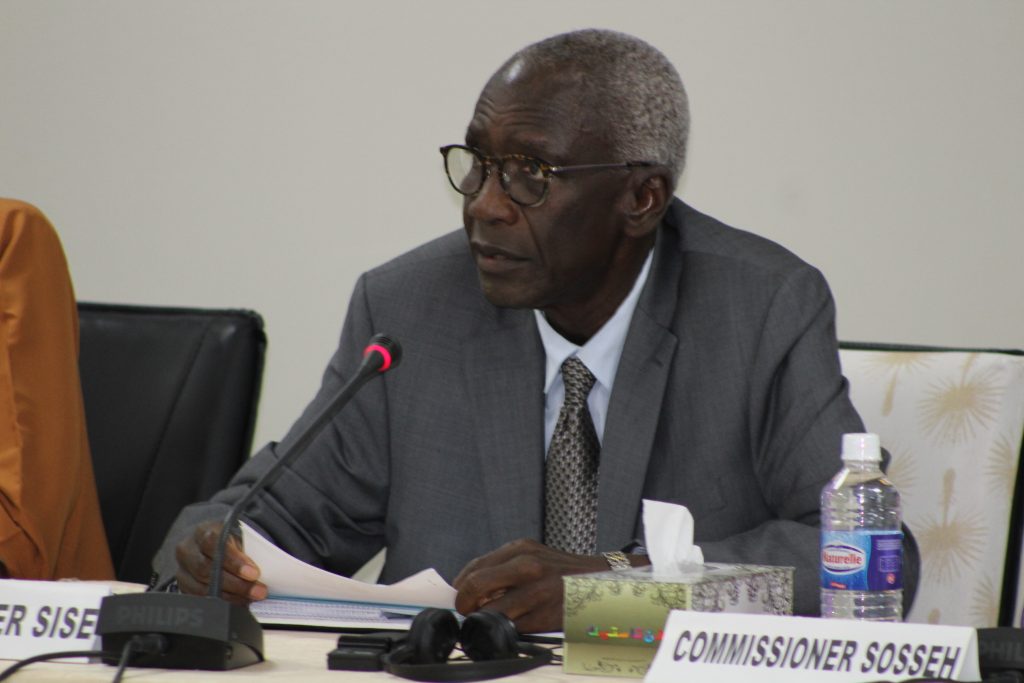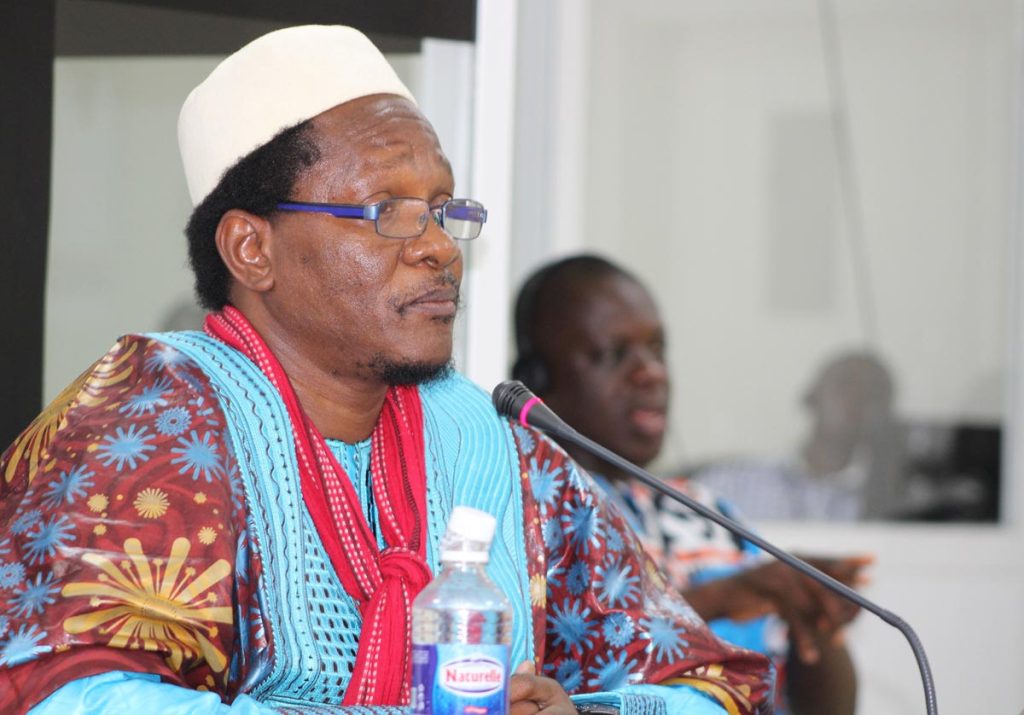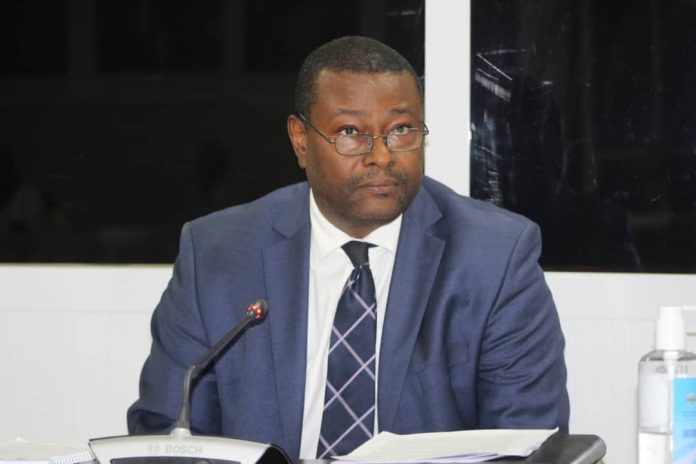The Truth, Reconciliation and Reparations Commission (TRRC) in its Investigative Report and Recommendations to The Gambia Government, said the National Human Rights Commission (NHRC) being a permanent independent body with a mandate to promote and protect human rights and fundamental freedoms, is well positioned to monitor the implementation of the TRRC recommendations.
Here is an excerpt from the TRRC Recommendations and Government’s Position on the ‘White Paper’ on NHRC and Amnesty respectively.
National Human Rights Commission (NHRC)
Background:
In December 2017, the Government of The Gambia enacted a series of laws setting up a Constitutional Review Commission (CRC), a Truth, Reconciliation and Reparations Commission (TRRC) as well as a National Human Rights Commission (NHRC). These instruments and institutions form the broader framework of the Transitional Justice Process intended to enable the country to transition from the Jammeh dictatorship – during which Gambians suffered gross violations of human rights to a democratic dispensation.

The TRRC had a limited time span to carry out its mandate of investigating and establishing an impartial historical record of the nature, causes and extent of violations and abuses of human rights committed during the period of July 1994 to January 2017 and to consider the granting of reparations to victims and for connected matters.
The NHRC however is a permanent independent body with a mandate to promote and protect human rights and fundamental freedoms through monitoring, receiving, investigating and considering human rights violations in The Gambia as well as assisting the Government in formulating appropriate policies with respect to human rights. Due to the complementary mandates of the two commissions, the NHRC is well positioned to monitor implementation of the TRRC recommendations.
In the process of implementing its mandate the TRRC has accumulated a wealth of material which can contribute not only to building the impartial historical record of what happened in The Gambia during the period July 1994 to January 2017 but can also be used for research by academia and for other countries to learn from The Gambia experience.
Recommendations from the TRRC and the position of the Government:
The Commission made the following recommendations:
That the NHRC be given the responsibility of monitoring the implementation of the TRRC recommendations and in that capacity reports on the status of implementation and provides an annual report to the National Assembly.

The Government accepts the recommendation of the Commission. The NHRC is an independent body with the statutory mandate to promote and protect human rights. The NHRC is therefore well placed to monitor the implementation of the Report and make recommendations to Government on better implementation as well as report to the National Assembly annually on the status of implementation.
That the NHRC be responsible for the archiving and digitalisation of documents, information and materials emanating from the TRRC to help in the preservation of the impartial historical record of human rights violation that the TRRC was mandated to establish.
The Government notes the recommendation of the Commission. The Government holds the view that the documents and materials emanating from the Commission are of national interest and should be widely available to the public. The Gambia National Library has been the statutory archive of printed material, documents and visual materials of historical significance in the country. Noting the limited resources available to the National Library historically, the Government intends to use this opportunity to improve and strengthen the library’s infrastructure and overall capacity and in particular its digital and archiving capacity to promote greater public accessibility to the materials and documents. The Government shall secure the services of archiving specialists to assist with the classification of the archives.
Amnesty
Background:
The TRRC Act gave the commission the power to recommend the granting of Amnesty to persons in appropriate cases upon application for Amnesty. An Amnesty Committee was therefore established to coordinate the amnesty process and make recommendations to the Commission for approval.
The Commission developed amnesty guidelines which included the procedure for making an application, the eligibility criteria and the evaluation process. The predominant criteria were whether the application complies with section 19(1) of the TRRC Act 2017, whether the applicant has made full and truthful disclosure of all relevant facts of his or her involvement in human rights violations and if the applicant has expressed remorse.
The Commission made a call for applications on the 4th of January 2022 and set the deadline for submission to January 21st 2022. The Commission received 25 applications from the following individuals:
Pa Alieu Gomez
Wassa Camara
Basiru Sey
Omar Cham
Ebrima Drammeh
Lamin Bo Baaji
Baboucarr Sowe
Tijan Bah
DSP Lamin Cham
Yusupha Sanneh
Amadou Bojang
Harry P. F. Sambou
Dr Isatou Njie Saidy
John Charles B Mendy
Baboucarr Njie
Edward Dennis Singhatey
Peter Singhatey
Lt. Malick Jatta
Omar A. Jallow
Pa Ousman Sanneh
Baboucarr Mboob
Major Baboucarr Bah
Sanna Bairo Sabally
Zakaria Darboe
Alagie Kanyi
Out of the 25 applications received, 6 had “Without Prejudice” written on the application letter and 7 were not signed by the applicants but by their lawyers. The Commission wrote to them to remove the “Without Prejudice” endorsement and to and to sign the applications themselves.
The committee reviewed all twenty-five applications and made determinations on each one. It submitted its report for approval which was obtained on the 28th of February, 2022. Of all the applications received, 11 were dismissed, 8 were denied, 5 were approved and 1 was referred to the Attorney General for finalisation of granting of immunity.
Recommendations from the TRRC and the position of the Government:
The Commission having considered the all the applications for amnesty made the following Recommendations;
The Commission recommended the dismissal of the application by Pa Alieu Gomez on the basis that it was not an application for Amnesty but rather a rebuttal of witness testimony.
The Government accepts the Commission’s recommendation with regards to Pa Alieu Gomez.
The Commission recommended the dismissal of the application by Wassa Camara on the basis that there was no recommendation for prosecution made against him as he is not one of those who bear the greatest responsibility.
The Government accepts the Commission’s recommendation with regards to Wassa Camara.
The Commission recommended the dismissal of the application by Basiru Sey on the basis that he was recommended to be reprimanded administratively and not to be prosecuted. He showed remorse and participated in reconciliation with his victims.
The Government accepts the Commission’s recommendation with regards to Basiru Sey.
The Commission recommended the dismissal of the application by Omar Cham on the basis that while a finding was made against him, no recommendation was made for him to be prosecuted as he showed remorse and participated in reconciliation with his victims.
The Government accepts the Commission’s recommendation with regards to Omar Cham.
The Commission recommended the dismissal of the application by Ebrima Drammeh as he was banned from holding public office for 10
years and not recommended for prosecution. He did not therefore qualify for Amnesty.
The Government accepts the Commission’s recommendation with regards to Ebrima Drammeh.
The Commission recommended the dismissal of the application by Lamin Bo Baaji as he was banned from holding public office and not recommended for prosecution. He did not therefore qualify for Amnesty.
The Government accepts the Commission’s recommendation with regards to Lamin Bo Baaji.
The Commission recommended the dismissal of the application by Baboucarr Sowe as he was banned from holding public office and not recommended for prosecution. He did not therefore qualify for Amnesty.
The Government accepts the Commission’s recommendation with regards to Baboucarr Sowe.
The Commission recommended the dismissal of the application by Tijan Bah as he was banned from holding public office and not recommended for prosecution. He did not therefore qualify for Amnesty.
The Government accepts the Commission’s recommendation with regards to Tijan Bah.
The Commission recommended the dismissal of the application by DSP Lamin Cham on the basis that he is not recommended for prosecution. The Government accepts the Commission’s recommendation with regards to DSP Lamin Cham.
The Commission recommended the dismissal of the application by Yusupha Sanneh on the basis that it was a case of mistaken identity. The Commission’s report should have referred to Mustapha Sanneh instead. The Commission resolved to write to the Attorney General to inform him of the mistake, to apologise to Yusupha Sanneh and inform Mustapha Sanneh of his recommendation for prosecution as well as inform him he could apply for amnesty if he so desired.
The Government accepts this recommendation. The government notes further from the Commission’s report that no application for Amnesty was made by Mustapha Sanneh.
The Commission recommended the dismissal of the application by Amadou Bojang as he was recommended to be reprimanded and not for prosecution.
The Government accepts the recommendation of the Commission with regards to Amadou Bojang.
The Commission recommended the dismissal of the application by Harry
P. F. Sambou on the grounds that he was only recommended for banning from public officer with regards to the torture, inhumane and degrading treatment of Yaya Drammeh and Ballo Kanteh. His application was further recommended for denial on the grounds that he tried to evade responsibility and showed no remorse for the concealment of the unlawful killing of Daba Marena and 6 others.
The Government accepts the recommendation of the Commission with regards to Harry P. F. Sambou.
The Commission recommend the denial of the Application of Dr. Isatou Njie Saidy on the grounds that she did not give a full and truthful disclosure to the Commission. Furthermore, she described her role as passive even though the Commission found that during the 10th and 11th April 2000 student protests, pursuant to the instructions from ex-president Jammeh she instructed Baboucarr
Jatta to deploy the army. She failed to take responsibility and is one of the people who bear the greatest responsibility for that incident.
The Government accepts the recommendation of the Commission with regards to Dr. Isatou Njie Saidy.
The Commission recommended the denial of the application of John Charles B. Mendy on the basis that he did resend a signed application, but he did not give full disclosure, was not truthful and did not show remorse.
The Government accepts the recommendation of the Commission with regards to John Charles B. Mendy.
The Commission recommended the denial of the application by Baboucarrr Njie on the basis that he did not give full disclosure, he did not tell the truth and he did not show remorse.
The Government accepts the recommendation of the Commission with regards to Baboucarr Njie.
The Commission recommended for the denial of the application by Edward Dennis Singhatey on the basis that his application contradicted the process for applying for Amnesty by not being endorsed by him but rather by his lawyer. The Commission went further to state that even if it was signed by him, he had not given full disclosure as he was untruthful in his testimony. Furthermore, he showed no remorse except for his human rights violations towards Sanna B. Sabally. The Commission considered him amongst one of the people who bear the greatest responsibility for the human rights violations that took place during the November 11th unlawful killings and tortures, the death of Ousman Koro Ceesay and the torture of Sanna B Sabally, Sadibou Hydara and Baboucarr Sanyang.
The Government accepts the recommendation of the Commission with regards to Edward Dennis Singhatey.
The Commission recommended for the denial of the application of Peter Singhatey Singhatey on the basis that his application contradicted the process for applying for Amnesty by not being endorsed by him but rather by his lawyer. The Commission went further to state that the Applicant did not testify before the Commission, did not submit a written statement and did not give full disclosure of his participation in the crimes he was found to have participated in his Amnesty application. The Commission found Peter amongst one of the people who bear the greatest responsibility for the human rights violations that took place.
















